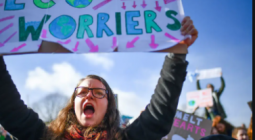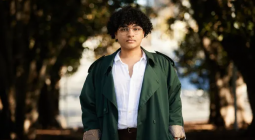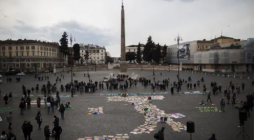‘People try to stop us speaking up’: Angelina Jolie’s lessons from young activists
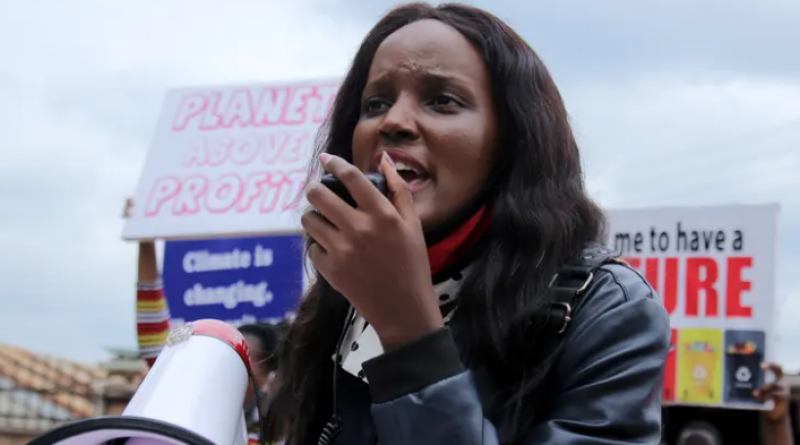
The actor’s latest project is a book to teach teenagers their rights. Here, she sits down with four young people to hear what they’re fighting for.
Angelina Jolie How do you feel the older generation are handling things?
Christina Adane, 17, a British anti-poverty campaigner, originally from Ethiopia If you’d asked me a year ago, I’d have said they had failed us and left us with a bunch of problems. I still feel that way at times, but I think cross-generational communication is crucial when fighting issues like racial and climate justice. It’s easy to fall into the mentality of us v them, youth v old people in power. But loads of older people want to help us. So it’s about connecting with decision-makers and ensuring they are listening, so they can represent us where we are not represented – in government, at meetings at the top of companies. We need to work with the older generation.
Muhammad Najem, 19, a Syrian now living in Turkey, who reported the government’s siege of his home region The older generation bears a great deal of responsibility. One of the most difficult things is they are silent about the truth and what they have seen. That’s true of Syria and the world in general. Children are going without food. This has happened because of fear and greed.
Angelina What was the moment when you became aware you had to fight for your rights or those of others?
Vanessa Nakate, 24, a Ugandan climate justice activist In 2018, in my last year of university, I carried out research to understand the challenges people in my country were facing. We were starting to see the impact of droughts on farmers’ livelihood, and that is when I joined the climate movement. In 2019 I started Fridays for Future in Uganda, striking every Friday in demand for climate justice. To think about the future the older generation have left us is so disappointing. It’s no longer about the future, it’s about the present, which is scary and catastrophic. People are going hungry, losing their homes, walking long distances to collect water and dropping out of school because of these disasters. If this is the present, what future should we expect for those in the most affected areas? The climate crisis is a human rights issue; if there is no climate justice, people will not have the right to clean air, housing, water and education. It affects every sector of our lives.
Angelina Emily, when did you start to educate yourself about your rights?
Emily Waldron, 13, a British campaigner for transgender rights It was 2017. I learned there are a lot of people who dislike me because I am transgender. I want to educate them about who I am and other kinds of LGBT people. It’s been difficult. I came to realise how bad the world can be. I am 13 now and I started doing a bit of stuff when I was eight. My family had to educate themselves because at three I’d say to them: I’m secretly a girl and not a boy. They thought it was just a phase, but when it continued for a few years, they decided what I was saying was true.
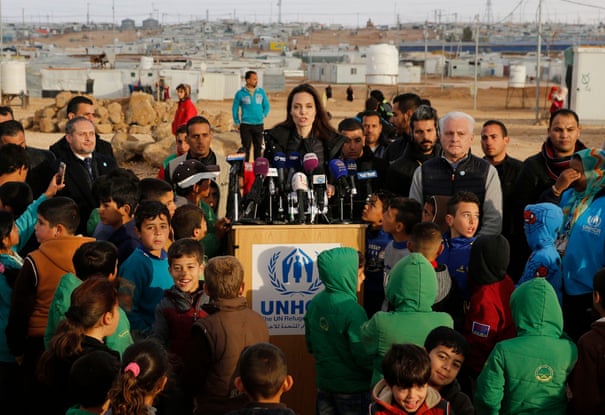
Angelina Christina, what is your challenge at the moment?
Christina Being from Tigray, northern Ethiopia, is very difficult. There is a genocide going on; women and children’s rights are being abused every day. The biggest challenge for me is accepting that, no matter how much I want to change something, there is no formula to fix a problem. Listening to activists from other parts of the world, things I took for granted, like just being able to say something in public and not face any repercussions, is something I have been massively grateful for. But as soon as I try to step out of my bubble, it’s a whole other battle. Raising awareness is very difficult.
Muhammad People try to prevent us from speaking to the world about our suffering. They don’t even allow us to make a small change.
Christina I have a question for Vanessa. You always say, “We cannot eat coal, we cannot drink oil” and you posted about Stop Cambo – the UK government project to allow for new oil and gas fields to be mined. Most people in the UK don’t know about that and you’re not even in the UK, but you’ve been campaigning about it since 2018. How do you keep going ?
Vanessa In Uganda, survival depends on agriculture for many communities. So lack of rain means hunger, starvation and death, and too much rain means destruction of farms, homes and businesses. I want to see people’s suffering stop because my country and the countries across Africa are least responsible for the climate crisis, yet are suffering some of the most major impacts. What happens in the UK won’t stay in the UK; what happens in the Arctic won’t stay in the Arctic. The Earth is all connected. If one system is destroyed, all the systems are destroyed.
Another thing that keeps me going is knowing there are other activists speaking up. Angelina has talked about burnout. If you do activism without rest, you can crash. So there are times I need to take a day off, but when I do, I know Christina is speaking up, and vice versa. It’s knowing that millions of people across the world are coming together to fight for the present and the future that rightfully belongs to us; a future that is healthy, sustainable and equitable for all of us. That keeps me going.
Muhammad [To Angelina] How are your children?
Angelina My children are OK. I’m trying to help them be more aware of what’s happening and I think they are in awe of all of you. You are setting a great example for all of us.

